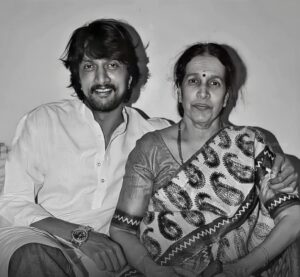In an engaging and insightful conversation, Bollywood stars Ajay Devgn and director Rohit Shetty share their perspectives on the evolving film industry, their philosophies on success, and what keeps them grounded in an ever-changing world. Both Devgn and Shetty have been influential figures in Indian cinema, with films like Singham, Golmaal and the upcoming Golmaal 5, shaping the landscape of Bollywood action and comedy. This candid interview offers a rare glimpse into their thoughts on career, fame, and family.

Early Beginnings and Cinematic Evolution
Ajay Devgn and Rohit Shetty recall the initial days of their careers, reflecting on the simplicity and rawness of Bollywood in the ’80s and ’90s. With fewer technological resources, they relied on skill and creativity to bring action scenes and intense emotional moments to life. Today, technology has revolutionized filmmaking with advanced special effects, but Shetty and Devgn both emphasize the importance of authentic storytelling and real emotions that resonate with audiences across generations.
The Brotherhood of Bollywood
Throughout the interview, the duo highlights the camaraderie they share, both on and off the set. This brotherhood extends to their collaborations with other industry icons, including their famous peers like Salman Khan and Akshay Kumar. For Shetty and Devgn, genuine friendship and respect among colleagues are key to creating memorable, successful films. This shared sense of purpose has not only bolstered their personal friendship but has also helped them create a series of iconic films that audiences cherish.
Managing Fame and Staying Grounded
Despite reaching the heights of stardom, both Devgn and Shetty reveal that they remain humble and unaffected by fame. Devgn explains how maintaining a balanced view of success and failure helps him stay focused on his work without getting distracted by public opinion or industry pressures. For him, the ultimate goal is not financial success but crafting films that audiences love.
Rohit Shetty, meanwhile, discusses the emotional connection he shares with his cast and crew. Whether it’s making films like Singham Again or his beloved Golmaal series, Shetty emphasizes the importance of teamwork. He notes that real success lies not in box office numbers but in the memories and friendships built along the way.
Embracing New Generations and Trends
Ajay and Rohit recognize the distinct generational shifts that have influenced Bollywood. The younger generation, born into a digital world, has vastly different challenges and opportunities. Social media and online validation are a central part of their lives. Devgn mentions how young people today often take everything more seriously, from success to criticism, due to the constant online scrutiny. He believes that maintaining a grounded approach to fame is essential for long-term happiness.
Reflecting on Success and the Future of Cinema
Reflecting on the journey of his iconic Singham character, Devgn shares how he never anticipated the cult status the character would achieve. Shetty reveals that his motivation for filmmaking is no longer about personal accolades or wealth, but about creating experiences that resonate with audiences on a deeper level.
When asked about the future of cinema, both are optimistic. They believe that as long as Bollywood stays true to its roots—focusing on powerful storytelling, emotion, and relatability—it will continue to thrive in an evolving industry landscape. The rise of OTT platforms and the demand for high-quality, diverse content are seen as exciting challenges that will push the industry to grow and innovate.
Conclusion
Ajay Devgn and Rohit Shetty’s conversation reveals a profound yet grounded philosophy about fame, film, and friendship. As they continue to evolve with the industry, their dedication to authentic storytelling, respect for the craft, and loyalty to one another and their fans remain their guiding principles. For these Bollywood stalwarts, success is not just measured by the box office but by the lasting impact they leave on their audiences and the industry.



